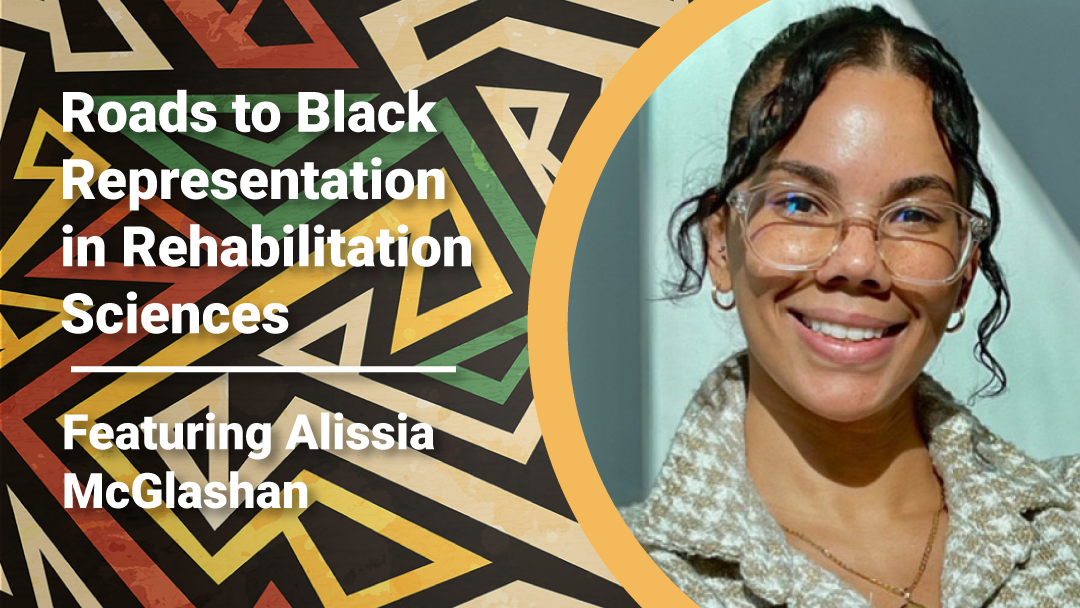Roads to Black representation in rehabilitation science- featuring Alissia McGlashan

The Faculty of Health Sciences at McMaster University recognizes the historic and systemic barriers that Black students face in accessing postgraduate educational programs and opportunities. In response, the MSc Programs now include a Facilitated Black Admissions Program (FBAP), specifically designed for individuals who self-identify as Black.
To shed light on the critical importance and impact of this specialized admissions path, FBAP volunteer assessors have provided insights from their professional journeys and discussed the FBAP’s role in shaping the future of healthcare.
Among these assessors is Alissia McGlashan, a registered occupational therapist at Lifemark Health Group.
Can you share some key milestones in your career?
Throughout my career, I have worked in different practice settings and populations, such as MVA, home care, long-term care and neuro-rehabilitation. I’ve truly allowed myself to practice as a generalist.
All these changes have created multiple opportunities to experience monumental moments in my career. One of the biggest milestones is my experience working as the sole occupational therapist for an entirely virtual neuro-rehabilitation program. This position allowed me to gain confidence in my clinical reasoning and find a passion for ongoing competence development. The second milestone in my career was a product of my efforts working as a virtual neuro-therapy – it was my seamless and well-supported transition to working in Calgary, AB. This was a demonstration of my leadership, and acknowledgement of my skills as it paved the way for me to enter into the mental health sector, which has always been my goal. And now, I get to practice trauma-informed care with an outstanding team.
Why is the FBAP stream important to you?
As a woman of colour, I seldom see health care professionals who look like me or understand the context of my life. When I entered the occupational therapy program, I immediately noticed that this trend was apparent in the profession. As I developed an understanding of the profession, I grew to appreciate the importance of culture to one’s occupational profile. This is why FBAP is so important. It is important to have clinicians of various cultural and ethnic groups facilitate a return to basic and instrumental activities of daily living. After all, who is better to get you there than someone who’s been there themselves?
How does the FBAP compare to the previous admissions process for Black applicants?
The FBAP is different than the previous admissions process in that it helps mitigate the intersectionality that one may perceive and face in pursuit of a better future. It creates a space where one’s diversity is not a barrier to their success. Programs like the FBAP enable candidates to feel free to express their true selves and speak to the genuine challenges and successes that make them great candidates for the profession, without reservation. In comparison, the previous admission process, which has also always been supportive, can tend to miss a key component of a person’s story – cultural context.
Why were you motivated to volunteer as an assessor for this stream?
I am motivated to volunteer as an assessor for the FBAP stream as I’m excited to see the future generations of occupational therapists. I value the ability to have a direct role in it. As an assessor, you can support individuals that you see have the potential to address a need that has not been met and gaps in the profession. It’s a true honour to be part of the profession’s legacy!
Want to learn more about the Faciliated Black Application Program for our Occupational Therapy program – see here.
Black History Month, News